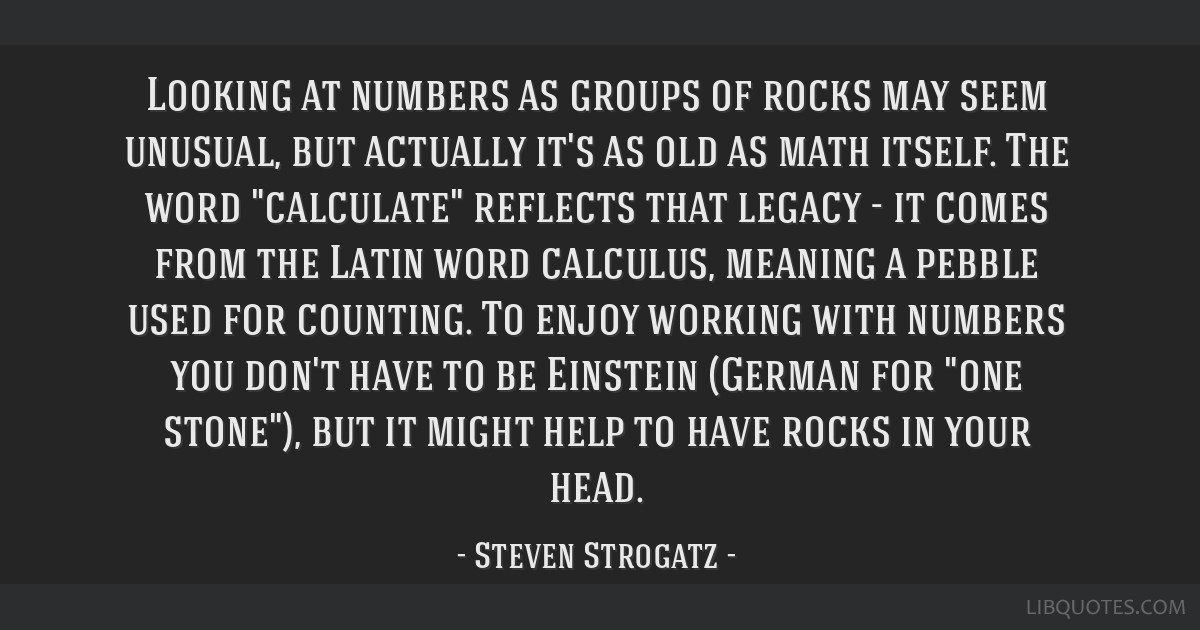Looking at numbers as groups of rocks may seem unusual, but actually it's as old as math itself. The word "calculate" reflects that legacy - it comes from the Latin word calculus, meaning a pebble used for counting. To enjoy working with numbers you don't have to be Einstein (German for "one stone"), but it might help to have rocks in your head.
The Joy of x: A Guided Tour of Math, from One to Infinity (ed. Houghton Mifflin Harcourt, 2012) - ISBN: 9780547517667























